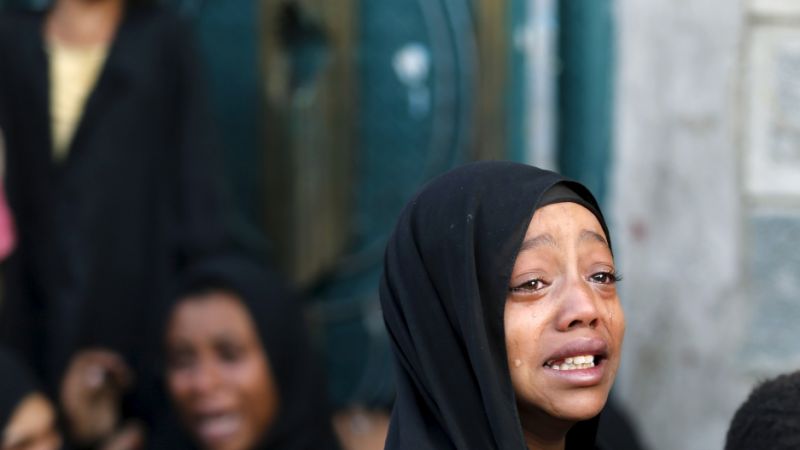
By Jeanne Shaheen and Todd Young
The civil war in Yemen has been raging for more than three years and has created the world’s worst humanitarian crisis. The statistics are staggering: Three-quarters of Yemen’s population, approximately 22 million people, need humanitarian assistance; 8 million are threatened with starvation; and 400,000 children suffer from severe malnutrition. Yemenis are experiencing the worst outbreak of cholera in modern history. Devastation of schools, health-care facilities, and water and sewer infrastructure further compounds the crisis.
Yemen is also one of the world’s worst terrorist havens. In addition to having an Islamic State presence, Yemen is headquarters for al-Qaeda in the Arabian Peninsula, which is widely viewed as al-Qaeda’s most dangerous affiliate. Further, the civil war has provided Iran an opportunity to extend its malign activities in the Middle East, threatening the United States, our partners and our regional interests.
The ongoing civil war is exacerbating the humanitarian crisis and terrorist threat. A major contributor to the devastation and chaos is the indiscriminate bombing campaign led by a coalition made up of Saudi Arabia and the United Arab Emirates, which receives refueling, intelligence and targeting support from the United States.
Last month alone, Saudi-led coalition airstrikes killed dozens of children in two separate incidents. The possibility that U.S. munitions might have been used in the strikes has only heightened the sense of urgency to end these attacks on civilians.
We believe the United States’ national security interests and our humanitarian principles demand that we use our leverage to press all parties to end the civil war, protect civilians, and provide full and unfettered humanitarian access. Defense Secretary Jim Mattis recently warned that U.S. support for the coalition is “not unconditional.” We have already seen the transformative effect of demanding accountability when, after pressure from Congress and then the administration, the Saudi-led coalition opened a port it had closed as part of a starvation blockade of Yemen.
That’s why we have led bipartisan efforts in Congress to introduce and pass legislation into law that gives the Trump administration leverage that it can use to achieve our policy objectives and hold Saudi Arabia and the UAE accountable.
The annual defense bill that President Trump signed into law establishes a legal requirement for the secretary of state to submit written, detailed and unclassified certifications to ensure the Saudi-led coalition is taking steps to end the war, alleviate the humanitarian crisis and protect civilians. These certifications must be submitted to Congress no later than Wednesday. Without them, the law would prohibit U.S. air refueling assistance to Saudi-led coalition aircraft conducting missions exclusively focused on the civil war.
As members of the Senate Foreign Relations Committee, we have closely studied the situation in Yemen …. We believe there is a moral imperative to do everything we can to ensure the Saudi-led coalition stops killing civilians. In fact, the indiscriminate targeting of civilians will only push more Yemenis toward Iran and its proxies — giving Tehran increasing opportunities to threaten Americans, our allies and our interests.
We stand ready to work with the administration to persuade the Saudis and Emiratis to support our objectives for Yemen and to honor their commitments.
For the sake of the United States’ interests and our humanitarian principles, we hope the administration complies with the law and submits a good-faith certification by Wednesday. If that does not happen, support for the coalition in Congress may reach a breaking point as the world’s worst humanitarian crisis deteriorates further.
Jeanne Shaheen, a Democrat, represents New Hampshire in the U.S. Senate. Todd Young, a Republican, represents Indiana in the U.S. Senate.
Source: The Washington Post, Edited by Website Team